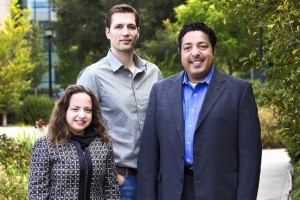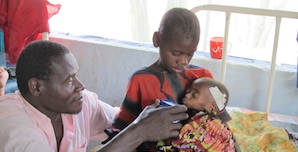On March 23rd, President Barack Obama signed into law, a major healthcare reform legislation, The Patient Protection and Affordable Care Act (HR 3590), following the passage of the bill by the House of Representatives on March 21st by a vote of 219 to 212, which was the previously passed healthcare legislation by the US Senate. The House also passed a second bill on Mar. 21, the so-called “fixer bill,” Health Care and Education Affordability Reconciliation Act of 2010 (HR 4872), which modifies certain provisions of the newly passed legislation and which has moved to the Senate for consideration.
While I was pleased that President Obama and the Democrats were finally able to deliver much needed reform to an ailing American healthcare system, the compromises that were made to pass the bill are troubling.
- First, language allowing reimportation of lower cost drugs from Canada and other developed nations was eliminated from the bill.
- Second, the provisions allowing the contentious 12 year data exclusivity provision for generic versions of biologic and biotechnology drugs remained in the final bill.
- Finally, and perhaps most importantly, any language alluding to or implying that the US government, may, in the future, be able to negotiate or regulate drug prices was obliterated.
In short, the pharmaceutical and biotechnology industries received all of the assurances and guarantees that were in the deal brokered by Billy Tauzin, the former head of the lobbying group PhRMA, between the White House and PhRMA over a year ago. Surprisingly, Tauzin was fired by PhRMA several weeks ago because its leadership mistakenly thought that Tauzin conceded “too much” to the Obama Administration when he brokered the original health reform package with the White House. (At the time that Tauzin was fired, health care reform legislation appeared to be on life support and all but dead).
In the final analysis, big pharma and biotech will give back $85 billion over ten years —largely by agreeing to give back some of the profits it was allowed to be collected from the egregiously flawed Medicare Part D legislation passed during the odious Bush Administration. While $85 billion may seem like a lot (to the average American citizen) to give back, it is important to note, that the size of the global pharmaceutical and biotechnology markets is over $600 billion per year. Although growth in these markets is beginning to slow in developed nations like the US and Japan (to high single digits), it is beginning to explode in heavily populated developing nations like China, India and Brazil where it is roughly 12-18%. But simply, despite assertions to the contrary, business in the biotechnology and pharmaceutical markets is booming and likely to continue for the foreseeable future.
In other words, the newly passed healthcare reform legislation is a “sweetheart deal” for the US life sciences industry (YIPPEEE FOR THE BIOTECH SIDE OF ME!).
Ironically, while the healthcare reform bill insures that almost all Americans will be entitled to healthcare coverage and that insurance companies cannot deny healthcare benefits to persons with pre-existing medical conditions, the legislation may actually limit the access of Americans to potentially life-saving biotechnology drugs. This is because the 12 year data exclusivity period for generic versions of branded, biotechnology drugs (otherwise know as follow-on biologics or biosimilars) remained in the final version of the healthcare reform bill.
This provision disallows approval of follow-on biologics for a period of 12 years from the data that the original biologic received US regulatory approval. For example, if a branded biologic or biotechnology product garners US regulatory approval in 2010, the earliest date that a generic version of this product would be able to appear on the US market would be 2022. Moreover, in some instances, the 12 year data exclusivity provision may extend the so-called patent life of a product. Using the example above, if the patents protecting the product happen to expire in 2019, the innovator company is guaranteed an additional three years of marketing exclusivity before generic versions of the product can appear on the US market. Finally, the 12 year data exclusivity provision effectively prevents foreign biosimilar manufacturers from competing in the US biotechnology market until about 2018; a strategy designed to allow the US to maintain its dominance of the global biotechnology market. Interestingly, despite the approval of six or more biosimilars in Europe, these products have failed to catch on and are not able to compete with their branded, innovator counterparts.
My thoughts if I were in the shoes of a physician:
“I should quit being a physician, and file for unemployment. This way I would earn more to take care of my expenses.” – Quote from my amazing, great sister.
There are tons of articles out there that cover the pain from the current medical practitioners out there, and there are countless quotes from physicians in regards to the new health care legislation. In all seriousness, their jobs definitely did get tougher.
Here’s a great recent article that sums it up.
The current public that are ignorantly saying that doctors are overpaid (frick – athletes and hollywood are overpaid, and there should be some new tax law that attacks the entertainment industry) – really need to put themselves in their shoes. The current reimbursement rates and endless red tape forces many primary care physicians to hire more staff and see more patients in order to cover their costs. Their costs continue to rise, driven by rising malpractice premiums and payroll and small business taxes and fees. Several physicians have held their own paychecks for several months in order to make payroll. Also, we’re not forgetting the several hundreds of thousands of medical student loans to pay back.
This bill is extremely penalizing the people who are out to save lives, and I completely understand their pain. I’ve spent countless amount of days working and shadowing doctors in clinic – and realistically, they already have an extreme patient load. There were days where we had one patient chart after another for 10 straight hours without having a proper break.
In conclusion, I laud President Obama’s persistence and give him props for his ability to deliver (as promised) health reform to the American public. I have no doubt that the legislation will help to improve the delivery of healthcare in the US and hopefully improve the overall health of Americans. However, while the new healthcare reform legislation is a first, positive step, the American healthcare system will never entirely be “fixed’ until healthcare practitioners are not penalized in all ends including malpractice insurance, and until US drug prices are regulated—like they are in the rest of the world.
My Urban Nerd readers – what are your thoughts?


